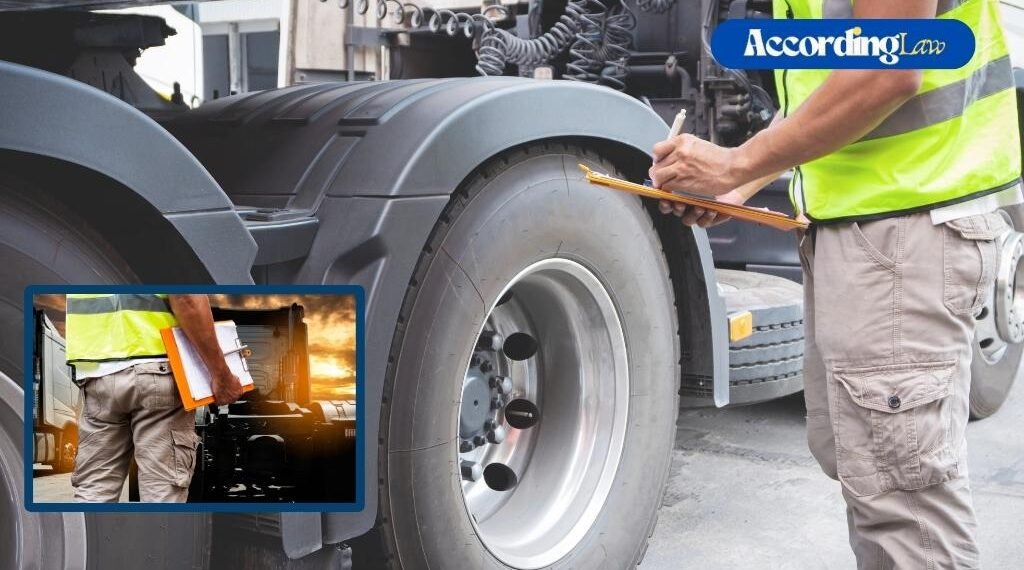In the ever-evolving landscape of the trucking industry, prioritizing safety protocols is not merely a regulatory obligation but a strategic imperative. As a decision-maker within a trucking company, you are acutely aware that accidents and compliance failures can lead to significant legal repercussions. Truck accident lawyers often cite poor maintenance records and insufficient training as preventable contributors to legal liability.
Table of Contents
Essential Safety Protocols for Trucking Companies
Implement Comprehensive Driver Training Programs
To minimize legal risks, establishing comprehensive driver training programs is crucial. Training should cover not only the basics of driving large vehicles but also advanced defensive driving techniques and awareness of current regulations. Regular refresher courses are beneficial for keeping drivers up to date on new laws and technologies. By investing in continuous education, trucking companies can ensure that their drivers are well-prepared to handle diverse situations safely.
Maintain Rigorous Vehicle Inspection and Maintenance
A well-maintained fleet is a cornerstone of safety. Regular vehicle inspections and maintenance reduce the likelihood of mechanical failures that can lead to accidents. Establish a protocol for routine vehicle inspections, including brake inspections, tire condition assessments, and engine performance evaluations. Documenting these inspections meticulously is crucial, as they serve as evidence of due diligence in the event of litigation. This proactive approach not only enhances safety but also extends the lifespan of the vehicles, proving cost-effective in the long run.
Enforce Strict Compliance with Hours of Service Regulations
Driver fatigue is a significant factor in many trucking accidents. To mitigate this risk, enforce strict adherence to Hours of Service (HOS) regulations. Implement systems to monitor and manage driving hours, ensuring that drivers receive adequate rest. Consider using electronic logging devices (ELDs) to accurately track driving and resting periods. By promoting a culture of rest and alertness, companies can significantly lessen the likelihood of fatigue-related incidents.
Foster a Culture of Safety
Instilling a safety-first mindset across the organization is paramount. Encourage open communication about safety concerns and involve employees in the safety planning process. Conduct regular safety meetings and incentivize safe driving behavior. By fostering an environment where safety is a collective responsibility, companies not only enhance their safety protocols but also build a resilient, legally protected workforce.
The Role of Proper Maintenance in Reducing Legal Risk
Importance of Routine Maintenance
In the trucking industry, the condition of vehicles is paramount not only for operational efficiency but also in mitigating legal risks. Regular maintenance is crucial in ensuring that each truck is in optimal working condition, reducing the likelihood of accidents caused by mechanical failures. Inadequate maintenance can lead to a myriad of issues, from brake malfunctions to tire blowouts, which can result in severe accidents and subsequent legal repercussions. By adhering to a stringent maintenance schedule, trucking companies can significantly lower the chances of such incidents occurring.
Documentation and Compliance
Effective maintenance goes beyond mechanical upkeep; it also involves meticulous documentation of all maintenance activities. Keeping comprehensive and up-to-date records is essential for demonstrating compliance with industry standards and regulations. In the event of litigation, these records can serve as critical evidence to demonstrate that the company has consistently adhered to safety protocols.
This documentation should include details of regular inspections, repairs, and any preventive measures taken to ensure the system’s optimal performance. By maintaining thorough records, companies can protect themselves from unwarranted claims and demonstrate their commitment to safety and compliance.
Investing in Preventive Measures
Preventive maintenance is an investment that pays off in the long run by reducing downtime and minimizing the potential for accidents. Companies should consider implementing advanced diagnostic tools that can detect issues before they become serious problems. Moreover, investing in training for maintenance staff ensures that they are equipped with the knowledge to identify and effectively address potential hazards. By prioritizing preventive measures, trucking companies not only enhance the safety of their fleets but also significantly reduce their exposure to legal liabilities.
Final Thoughts
By prioritizing robust safety protocols, you can significantly diminish legal risks and enhance operational efficiency within your trucking company. Implementing comprehensive training programs, maintaining meticulous maintenance records, and fostering a culture of safety are not merely compliance measures but strategic investments in your firm’s future.
Additionally, having these measures in place can strengthen your position should you ever need to work with truck accident lawyers, demonstrating your company’s commitment to safety and regulatory compliance.


